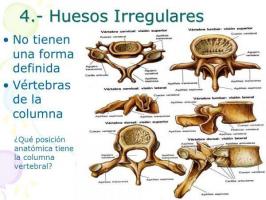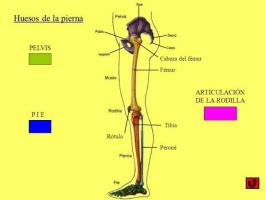Function of the excretory system
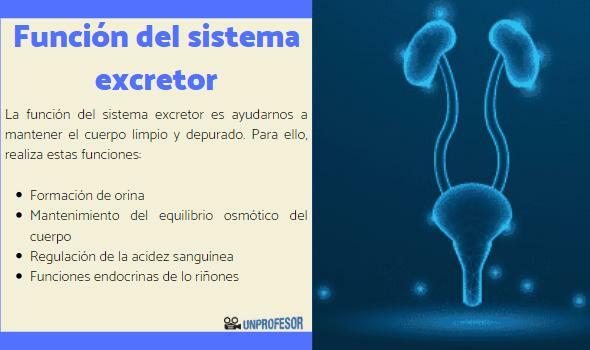
The human body is made up of nine systems: locomotor, nervous, cardiovascular, respiratory, digestive, immune, endocrine, reproductive and excretory systems. One of the least studied systems is the excretory system, which is responsible for eliminating substances that our body does not need either because they are superfluous, or because they are toxic.
In this lesson from a TEACHER we will see the main function of the excretory system, but we will also briefly review secondary, lesser known functions of the excretory system. If you want to know more, keep reading!
Index
- Parts of the excretory system
- Formation of urine
- Maintenance of the osmotic balance of the body
- Regulation of blood acidity
- Endocrine functions of the kidneys
Parts of the excretory system.
To study the function of the excretory system, we will first briefly review the parts of it.
Generally, the excretory system is described as the set of kidneys, ureters and urethra, but this is not quite correct. The kidneys, ureters, and urethra make up the urinary system, which is just one part of the excretory system. To these must be joined other tissues such as the skin, lungs and liver. As we will see later when we review each of the functions of the excretory system, they also have an important role in the elimination of waste.
Therefore, the excretory system is formed for:
- Urinary system: kidneys, ureters and urethra
- Skin
- Lungs
- Liver
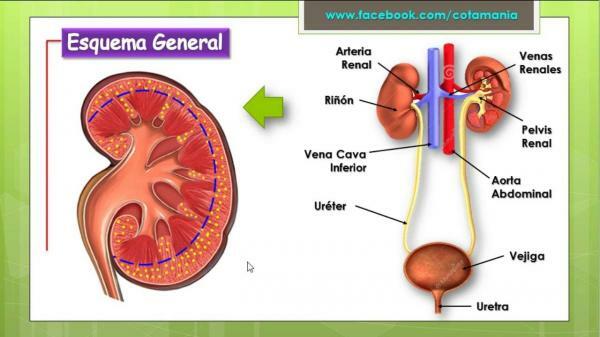
Image: Facebook
Formation of urine.
The function of the excretory system is to help us maintain the clean and refined body. The main way of waste disposal in our body is the formation of urine. The urinary system It is responsible for filtering the blood that circulates throughout our body, selecting the compounds that are not useful or that are toxic to the body. All these compounds pass selectively through the kidney.
Urine is mainly made up of water, sodium chloride (salt), potassium, calcium, urea, and other ions. All these compounds have important functions within the body, and the variation of the body levels can lead to the appearance of pathologies or diseases.
Much of the food we eat has salt, so in the 180 liters of filtrate produced daily by an adult, there is 1.5 kg of salt; Not all this salt is eliminated, but only 1% will be eliminated, since salt participates in the correct maintenance of our body and systems such as the nervous system.
Potassium plays a crucial role in the excitability of muscles and the nervous system, by like calcium, which is also involved with the formation and functioning of various hormones. Finally, urea is a residual product of the metabolism of amino acids and other compounds. nitrogenous, that is, the metabolism of proteins, both ingested and discarded by our Body.
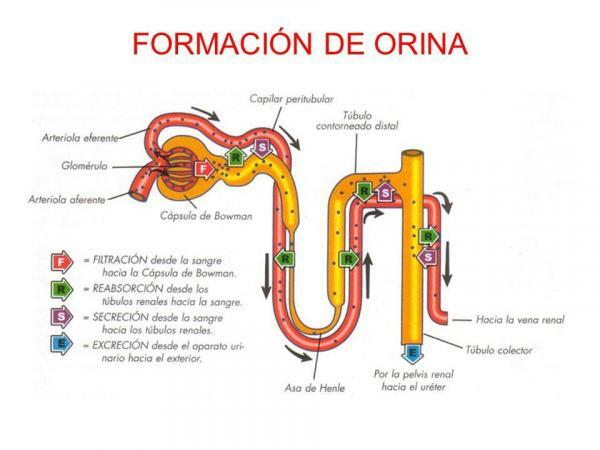
Image: Pinterest
Maintenance of the osmotic balance of the body.
Water represents on average 60% of body weight in adult men and most organs have more than 70% water content. But a good hydration of the body depends not only on the precise volume of body water, but also on the existence of an adequate proportion of substances in it. Substances dissolved in the blood are called ions or electrolytes, and it is very important to keep their composition within healthy limits.
In order to maintain the correct electrolyte ratio (osmotic balance), the body can demand that we ingest electrolytes, or that we eliminate water. In general, to keep the body in osmotic balance, water losses are proportional to gains, so that about two and a half liters are lost per day. Is water loss takes place in 4 ways:
- Through the kidneys: the kidneys are responsible for excreting or eliminating approximately 60% of this volume in the form of urine.
- Through the skin: perspiration from the skin gives rise to sweat, through which the body eliminates 8% of the total volume of water lost in one day.
- Through the lungs: through the breath it removes approximately 28% of body water.
- Through the gastrointestinal tractl: the body eliminates 4% in body water through faeces.
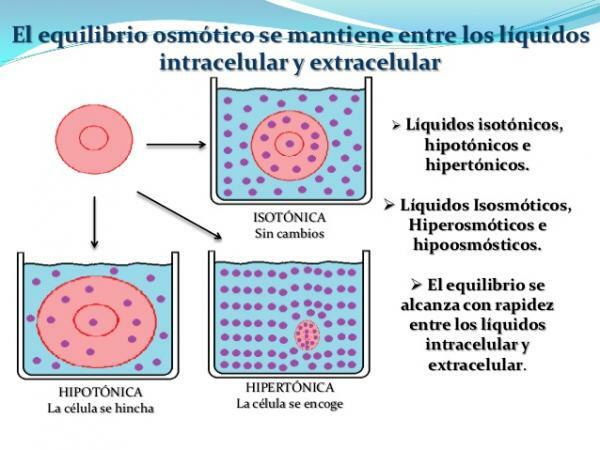
Image: Slideshare
Regulation of blood acidity.
Within the human body, and especially in the blood, a large number of chemical reactions take place. For these to be carried out in a normal way and in the appropriate quantities, it has been also maintain blood acidity or pH.
The body has to maintain constant and stable blood acidity, around a pH of 7.4. This is achieved by the so-called acid-base balance, which is mainly responsible for controlling renin, a hormone that participates in the renin-angiotensin-aldosterone system.
Endocrine functions of the kidneys.
To perform the function of elimination of bodily waste, the kidneys have a mechanism for the production of hormones. These hormones, which function as regulatory systems, send signals both to the kidneys themselves and to other organs involved, such as the lungs or bones.
The kidneys mainly secrete three hormones:
- Renin. This hormone participates in the renin-angiotensin-aldosterone system, which contributes to the maintenance of blood pH (acid-base balance).
- Erythropoietin. Erythropoietin is a hormone that acts on the bone marrow, stimulating the maturation and proliferation of red blood cells. These are responsible for carrying oxygen through the blood.
- An active form of vitamin D. 1,25-dihydroxycholecalciferol is an active form of vitamin D that stimulates the active absorption of calcium from the intestine. This favors the regulation of calcium metabolism, one of the major ions in urine.
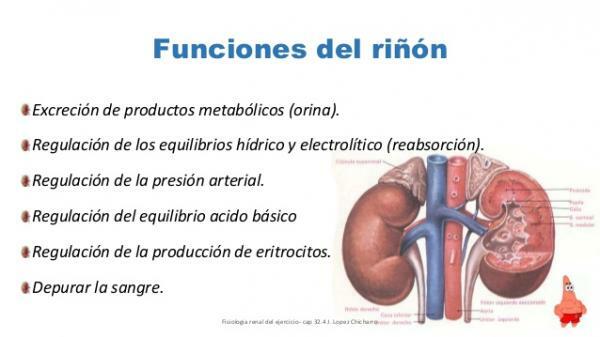
Image: Slideshare
If you want to read more articles similar to Function of the excretory system, we recommend that you enter our category of biology.
Bibliography
- Torres Ruiz, A (s.f). Human excretory system: what it is, parts and functions. azSalud.
- Megías M, Molist P, Pombal MA. (2019). Atlas of plant and animal histology. Animal organs.
- Cutillas Arroyo, B (May 29, 2015). Urinary system. Functions of the urinary system. Infermeravirtual.com


